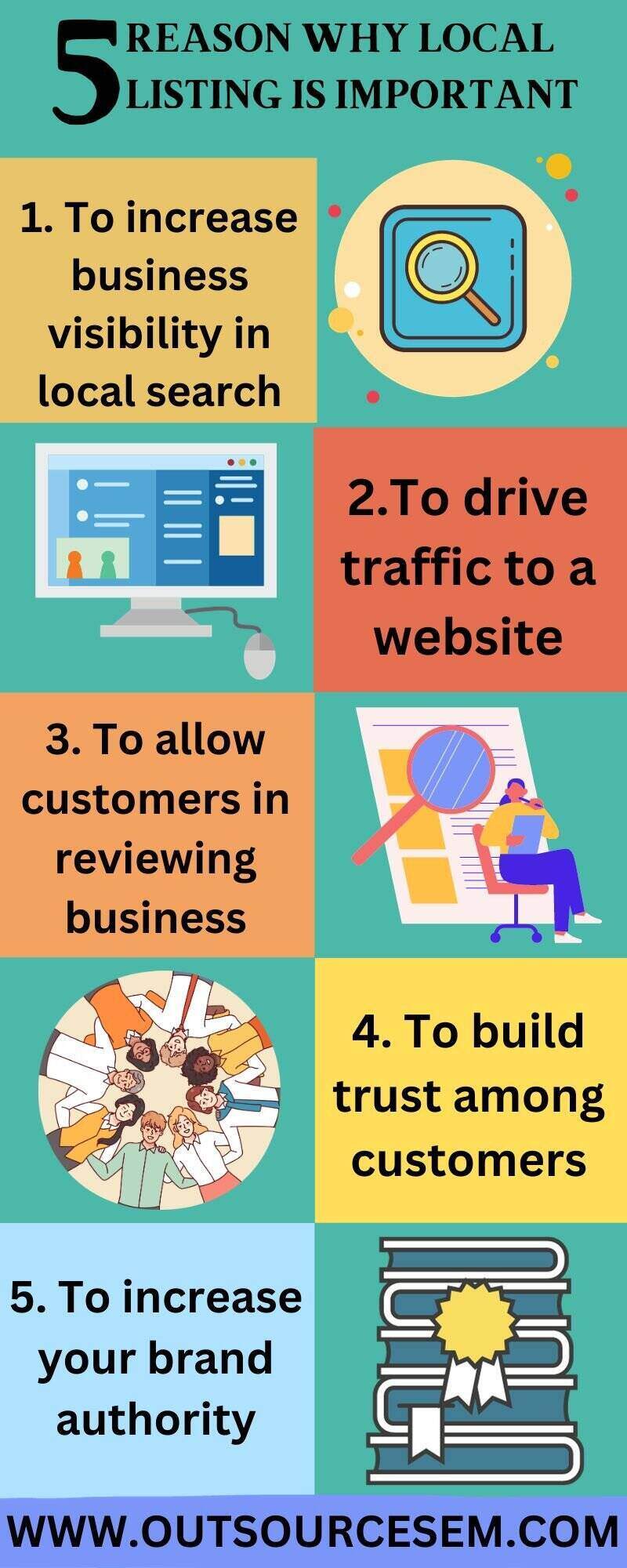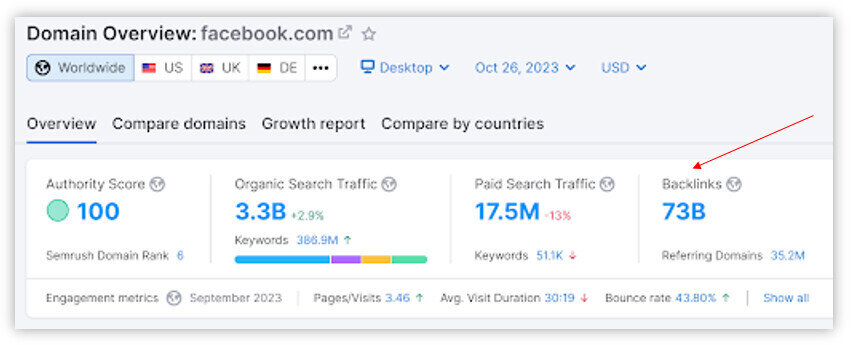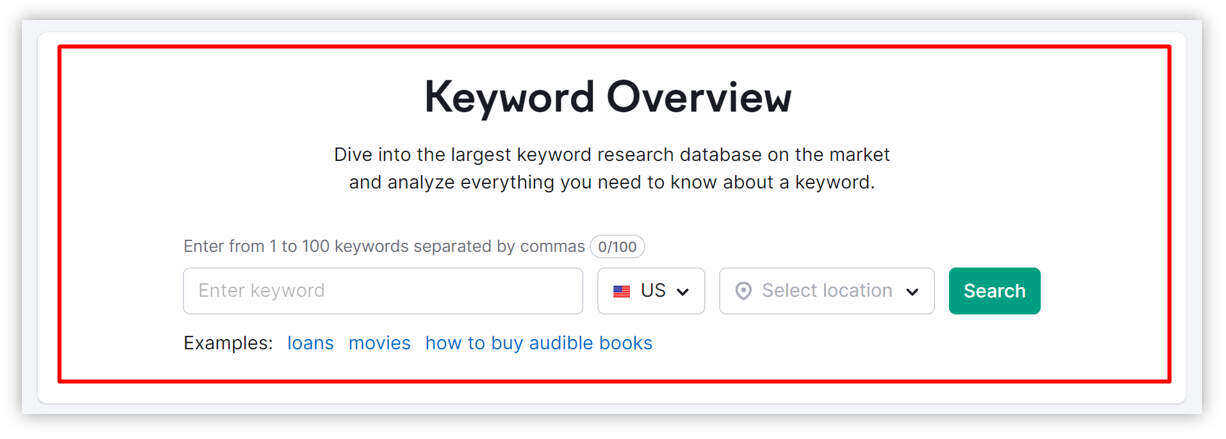In today's rapidly changing digital marketing landscape, it is crucial for businesses to master local SEO to increase brand awareness among their target audience. With online search results becoming a primary source of consumer decision-making, it is essential to ensure that your business appears prominently in local search results. Whether you are a local business owner seeking to boost your online presence or a marketer looking to optimize your website for a specific area, focusing on local listings is critical. In this blog, we will discuss how to manage and optimize local listings for SEO.
Online marketers need to stay up-to-date with the latest SEO trends to boost their website's performance in search engine results. By utilizing various tactics such as content marketing, social media marketing, email marketing, etc. businesses can achieve their desired marketing goals. Running PPC campaigns and SEO campaigns increases the online presence of a brand, focusing on local listings helps your online business increase online sales and increase conversion rate. However, before diving into local listings for SEO, it's important to understand what SEO and local SEO are.
SEO and local SEO
Search engine optimization (SEO) is a method that helps improve the website traffic, making it easier for people to find your business online for the keywords or search terms entered. By optimizing your website for search engines, you can increase organic traffic and focus visibility. The goal is to rank higher on search engine result pages (SERP) and drive more traffic to your website. The primary objective is to rank on the first page of Google search results for keywords that your target audience is most likely to use. Local SEO, on the other hand, is a way to optimize your online presence to increase local traffic, visibility, and brand awareness. You need to ensure that your website has a good page loading speed and convert the visitor into a customer.
What is a local listing?
Local listing refers to the online business profile providing essential details such as name, address, phone number (NAP), etc. These listings are crucial for businesses aiming to capture local searches, ensuring that potential customers find accurate & consistent information and helping search engines like Google populate results with accurate business-related data.
5 Reason why local listing is important

1. To increase business visibility in local search - Local listing helps your business to build long-term relationships with your local customers. It is a great way through which you can create business visibility about your products or services. Providing accurate information can persuade customers to visit your business near your area. It is estimated that 72% of customers visited local businesses in their area.
2. To drive traffic to a website - Local SEO helps increase website traffic and will rank higher on search engine pages. For example, If a person wants to buy a new pair of socks but is new in the area, so he doesn’t know about the shop, the first thing he will do is to search his intent on a search engine. If your website appears on the search result page, he will visit your business. In this way, you can drive traffic organically without spending additional resources.

3. To allow customers in reviewing business - Search engines show reviews such as four stars or five stars. These reviews act as a recommendation to other customers whether they should engage with you or not. These online reviews attract customers to your business. Therefore, it can build your company's trustworthiness and induce conversions.
4. To build trust among customers - Local SEO listing can improve your business's online presence, which leads to building trust between customers and companies. Since reviews act as recommendations, it is essential to implement changes on the basis of negative feedback. It will give customers a sense of satisfaction of being seen and heard, ultimately building trust between customers and your business.
5. To increase your brand authority - You can increase the visibility of our business and gain authority with the help of SEO backlinks to enhance your online presence further. Backlinks act as a recommendation for web crawlers. This backlink will help your website rank higher in the search results.
Basic components of local listing
A. NAP(business name, address and phone number) - NAP stands for the name of a business, its address, and its phone number. It is essential to make a consistent online presence; inconsistent NAP information across different platforms can confuse search engines, affecting the rank of your website or your webpage.
B. Updating information of your listings - Regularly updating your business listing is crucial in building the trustworthiness of your business online presence. Outdated listings can frustrate customers, leading to bad reviews about your business. Thus leading to a lower rank for your business. It is necessary to edit the details about your business; otherwise, it can lead to lost business opportunities. Google uses the Google Local algorithm to determine how businesses appear in search results. There are some of the Google ranking factors which lead to the search appearance these are:
i. Relevance
ii. Distance
iii. Prominence
C. Adding photos of in-store products - Visual content is necessary to attract potential customers and tell the story of your business. Therefore, it is crucial to add photos that can appeal to potential customers to your business offerings, setting expectations, and making informed decisions. Images can enhance user engagement, making them more likely to interact with your business over competitors. Adding high-quality photos can meet Google requirements and improve your business listing in local SEO. Some of the best practices that include adding local images are:
i. To ensure high image resolutions without pixelated images.
ii. Rotating photos to seasonal, up-to-date offerings.
iii. Showing different views such as, inside and outside of the business.
D. Scanning and replying to reviews - Reviews play an essential role in showcasing the image of any business. Positive reviews can benefit businesses as they can attract more customers. Conversely, negative reviews can hurt businesses and discourage potential customers from engaging with them. Regarding the local listing of Google business profiles, customers' complaints and queries are as important as any information on the page. Reviews play a dual role; they influence potential customers' perceptions of the business and impact the ranking of the business.
Therefore, responding to customers' reviews is essential because a positive review can boost business credibility and trustworthiness, while negative reviews, if not handled properly, can have consequences. It is essential to thank the reviewer for leaving a comment while addressing their specific concerns and maintaining a professional tone. This fosters customer loyalty and mitigates negative third-party results for queries that will be harder to control. Engaging in different social media platforms is also essential since it can affect the ranking of local business listings in search pages.
Outside local listings: Additional local SEO strategies
Local listing is an essential part of the SEO strategy of website but to dominate local listing some other strategies should also be taken into consideration.
Dominance of local keywords and contents
I. Target local keywords for localised search traffic.
II. Start with keyword research to find local effective keywords. By doing keyword research you can analyse what local user intent is. For more effective keyword research, one can outsource to an expert company in that field.
III. Consider creating localised blog contents or landing pages to capture niche local audiences.
.jpg)
Implement schema and structured data
a. Use local business schema on websites to provide search engines with location specific information.
b. Be specific and meticulous when implementing schema.
c. Regularly audit sites to find more schema opportunities. One can also outsource SEO audit to increase the webpage ranking on search engines.

Location pages and on-page optimization
1. For businesses with multiple locations, create separate pages for each location to enhance on page search engine optimization.
2. Use a clear URL structure and incorporate local keywords and meta tags.
3. Ingrain Google Maps for better user experience and search engine recognition.

Some of the tools that can improve local listing are as follows:
A. Google Business Manager - Google Business Manager is how you use your Google business profile. It is a free tool; every business owner should use it for local listing. Refer to this blog to understand in detail.
B. Google Search Console - Google Search Console is a free tool to monitor website search performance. It tells how much search traffic you are getting, where it is going, and what keywords it is coming from. It helps google to monitor how your website performs, resolve spamming issues to your website, submit new URLs and ensure that the redirects are working properly by crawling to your webpage.
C. Adding photos of in-store products - Visual content is necessary to attract potential customers and tell the story of your business. Therefore, it is crucial to add photos that can appeal to potential customers to your business offerings, setting expectations, and making informed decisions. Images can enhance user engagement, making them more likely to interact with your business over competitors. Adding high-quality photos can meet Google requirements and improve your business listing in local SEO. Some of the best practices that include adding local images are
i. To ensure high image resolutions without pixelated images.
ii. Rotating photos to seasonal, up-to-date offerings.
iii. Showing different views such as, inside and outside of the business.
D. Scanning and replying to reviews - Reviews play an essential role in showcasing the image of any business. Positive reviews can benefit businesses as they can attract more customers. Conversely, negative reviews can hurt businesses and discourage potential customers from engaging with them. Regarding the local listing of Google business profiles, customers' complaints and queries are as important as any information on the page. Reviews play a dual role; they influence potential customers' perceptions of the business and impact the ranking of the business.
Therefore, responding to customers' reviews is essential because a positive review can boost business credibility and trustworthiness, while negative reviews, if not handled properly, can have consequences. It is essential to thank the reviewer for leaving a comment while addressing their specific concerns and maintaining a professional tone. This fosters customer loyalty and mitigates negative third-party results for queries that will be harder to control. Engaging in different social media platforms is also essential since it can affect the ranking of local business listings in search pages.
Outside local listings: Additional local SEO strategies
Local listing is an essential part of the SEO strategy of website but to dominate local listing some other strategies should also be taken into consideration.
Dominance of local keywords and contents
I. Target local keywords for localised search traffic.
II. Start with keyword research to find local effective keywords. By doing keyword research you can analyse what local user intent is. For more effective keyword research, one can outsource to an expert company in that field.
III. Consider creating localised blog contents or landing pages to capture niche local audiences.
.jpg)
Implement schema and structured data
a. Use local business schema on websites to provide search engines with location specific information.
b. Be specific and meticulous when implementing schema.
c. Regularly audit sites to find more schema opportunities. One can also outsource SEO audit to increase the webpage ranking on search engines.

Location pages and on-page optimization
1. For businesses with multiple locations, create separate pages for each location to enhance on page search engine optimization.
2. Use a clear URL structure and incorporate local keywords and meta tags.
3. Ingrain Google Maps for better user experience and search engine recognition.

Some of the tools that can improve local listing are as follows:
A. Google Business Manager - Google Business Manager is how you use your Google business profile. It is a free tool; every business owner should use it for local listing. Refer to this blog to understand in detail.
B. Google Search Console - Google Search Console is a free tool to monitor website search performance. It tells how much search traffic you are getting, where it is going, and what keywords it is coming from. It helps google to monitor how your website performs, resolve spamming issues to your website, submit new URLs and ensure that the redirects are working properly by crawling to your webpage.
C. Ahrefs’ rank tracker - Rank tracking is a process through which you can track the rank of tagged keywords. Ahrefs’ rank tracker automatically collects data to show performance by search engine tag, that is, monitor the ranking of tagged keywords.
![]()
D. Ahrefs link intersect - With the help of Ahrefs' Link Intersect tool, you can easily find the websites that link to your competitors but don't link to your business (yet). Through the link intersection report you can analyse why other websites are not building links to you.
E. Grid My Business - Grid My Business shows map packs ranking the position of the keywords in the area around your business. It is a free/premium tool for understanding if and where local searches will likely see your business so that you can improve your brand visibility in the local market.
F. Google Keyword Planner - Google Keyword Planner is a free keyword research tool from Google. It is a valuable source of search volume ranges at the local level. It is an efficient tool to promote your business through search ads and analyse the performance of PPC campaigns.
Local SEO keyword research

Local keyword is the process through which you can understand how people search for local services. It is important because it helps in optimizing what people search for. Keyword research is essential to understand which keyword can promote business on the search page. Outsourcing keyword research can reduce businesses' workload and optimize business ranking on the search page.
How to search local keyword
I. Find service-based Keywords - Service-based keywords help people find the business quickly. For example, if you are a mechanic so, it is possible that most people will not search for 'mechanic near me'; instead, they will search as:
a. Car repair service
b Bike repair service
c. Broken brake repair servicing, etc.
Using service-based keywords can help you attract conceivable customers to your business. It can also improve your ranking on the page and build your company's trustworthiness.
II. Check search volumes - Search volume refers to the number of times, on average, that a user enters a particular search query into a search engine per month or annum. It is a valuable SEO metric because it’s the primary source for keyword research and traffic estimations. One can use the Google Search Console for enhanced PPC and SEO strategies.
III. Check for local intent - Local intent means a searcher wants to shop nearby. It helps to attract customers who want to shop nearby in that location. Doing keyword research for local intent and optimising those keywords can help websites to attract local customers.
IV. Assign keywords to pages - It is beneficial to assign targeted keywords to URLs because it is difficult for your homepage of the website to rank all the services you are providing. Assigning keywords to webpages can enhance user experience and help web crawlers to crawl and index pages for the type of product and services you provide.
How local SEO helps businesses?
Optimizing local business listings for SEO is crucial for businesses to increase business awareness and attract local customers. Effectively managing local search engine optimization (SEO) can improve business visibility on search pages and attract potential customers to buy your product and services. Local SEO listing can give a competitive advantage and increase the chances of conversion of products and services, helping your business to become established and prominent in the market. You can also outsource competition analysis to understand your competitor's strengths and weaknesses, which can help your business to implement strategies so that your business becomes visible in the market to build trustworthiness among the public in the local area as well as it can reflect the ranking of your website or business in the webpage.
Local business listings can help optimize your website with local keywords and phrases. Search engines will display the site more prominently in SERP when someone searches for something a business offers. SERP's help also increases the visibility within the targeted market in which a potential customer lives. The local listing also helps improve the business relationship with existing customers by providing personalized experiences based on their location and interests. It also allows businesses to build more prominently within localized search. It works wonders in generating leads and boosting conversions.
How listing local SEO helps marketers?
Local listing helps marketers to bridge the gap between customers and businesses. It lets marketers list the company on the search engine and allows enterprises to find their potential customers. Local listings also help marketers increase the visibility of any business or build trustworthiness and credibility in the market. It will enable marketers to fulfill the goal of business. For example, a vegetable seller in a particular area wants to increase his shop's visibility and sales. First, he will contact a marketer and tell him his business goals. The marketer can list the vegetable seller shop on a search engine in local SEO. It will reduce the cost and the effort put in by vegetable sellers to make their business visible. Therefore, local listing is a bridge to making businesses more stable and prominent. In contrast, it acts as a tool for marketers to satisfy the desires and needs of businesses.
Conclusion
Local SEO listings offer various benefits to businesses, consumers, and digital marketers depending on their needs and desires. It helps businesses to increase their visibility and improve their performance on search engines. Customers can conveniently find services nearby and identify authentic and credible businesses in their area. To improve your website's performance in local search results, you need to focus on crawling and indexing, ensuring that search engines easily recognize your website.
If you find local listing a tough task to perform you can outsource local SEO and avail of the best local listing services and generate leads. The SEO professionals have expertise in SEO reports, SEO analytics, guest posting, enterprise SEO, video SEO, detox and penalty removal, small business SEO, SEO copywriting, etc. and enhance the local listing performance for your business. Our digital marketing agency, we provide SEO services to businesses in the painting, plumbing, construction, appliance repair, and HVAC industries. If you need SEO services for home service businesses, we offer painting SEO, plumbing SEO, construction SEO, appliance repair SEO, and HVAC SEO to enhance your search engine rankings and local presence.
References:
. How to manage and optimize local listings for SEO
. A comprehensive guide to local SEO in 2023
